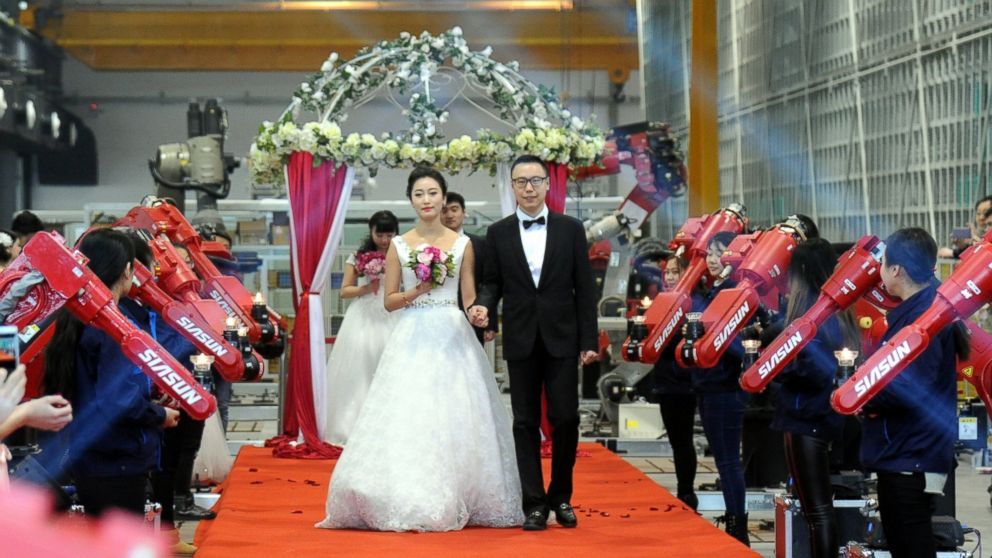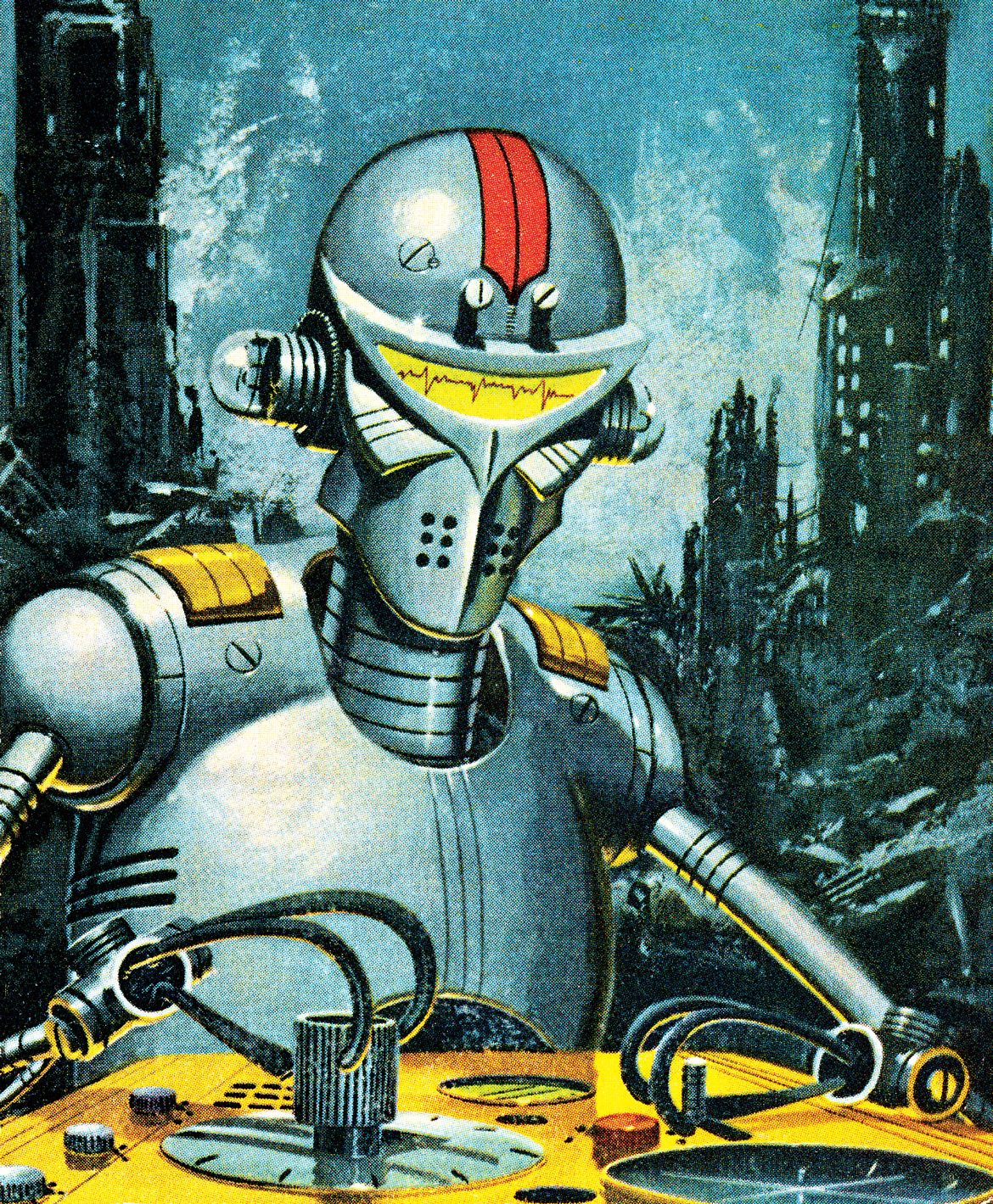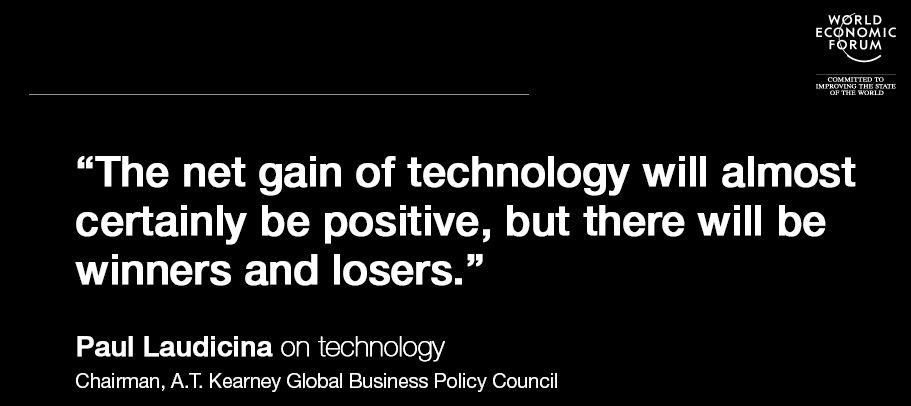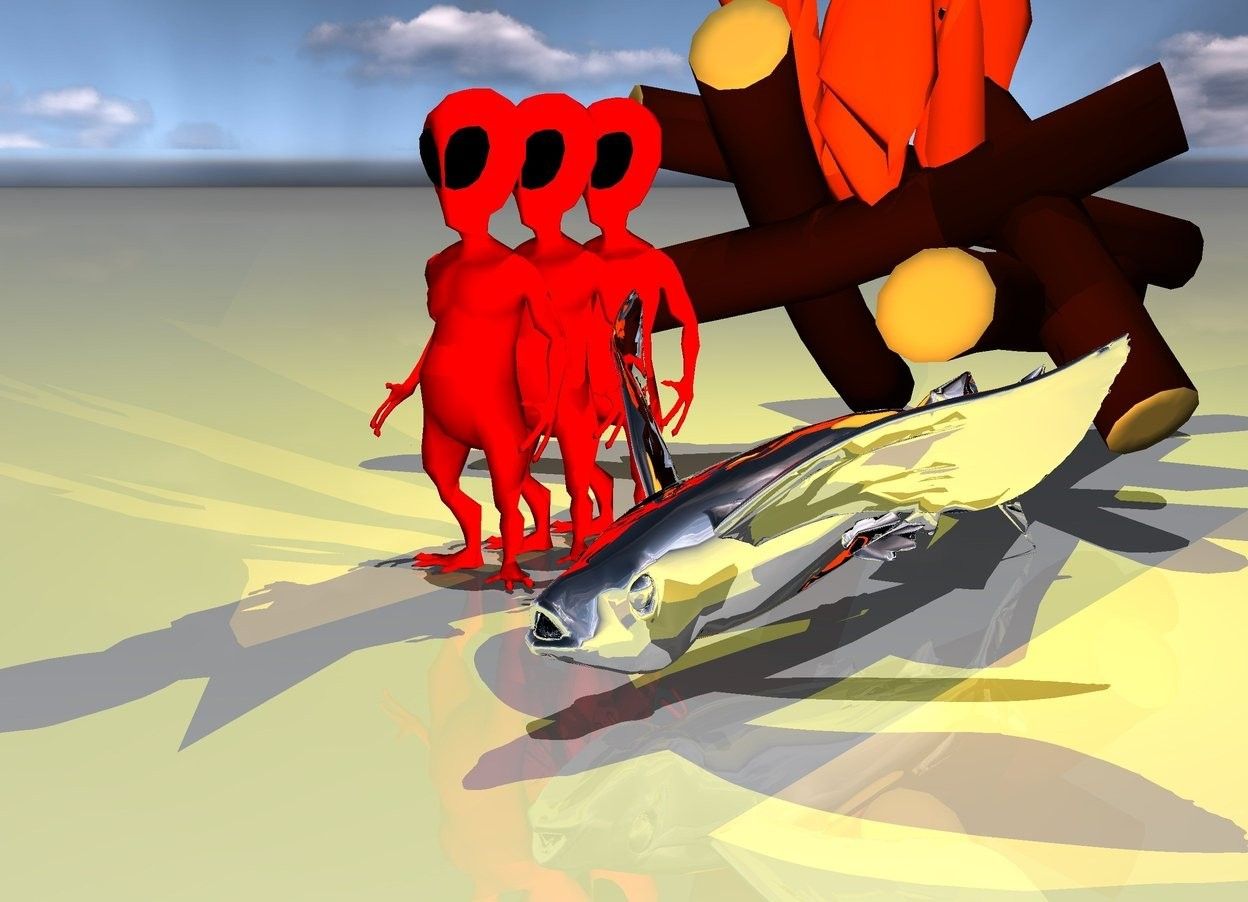Jan 21, 2016
Five Couples Tied The Knot at a Chinese Robot Factory
Posted by Karen Hurst in category: robotics/AI
A robot wedding.
Five couples sealed the deal at a robot factory in Shenyang, Liaoning Province of China, in one of the most unique wedding venues in recent news.
On Wednesday, robots of all forms serviced the entire wedding for the couples and guests alike. Some robots were merely appendages, holding candles out along the aisle. Others had a more humanoid form with bright, pixilated smiles. These robots served wine and greeted guests at the door. A few special ones even served as ring-bearers or flower girls.

















